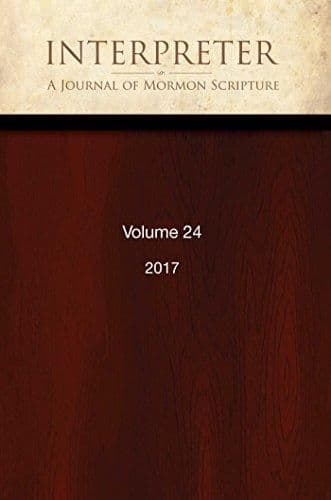Journal
The Great and Spacious Book of Mormon Arcade Game: More Curious Works from Book of Mormon Critics

Title
The Great and Spacious Book of Mormon Arcade Game: More Curious Works from Book of Mormon Critics
Publication Type
Journal Article
Year of Publication
2017
Authors
Lindsay, Jeff (Primary)
Journal
Interpreter: A Journal of Latter-day Saint Faith and Scholarship
Pagination
161-235
Volume
23
Abstract
A novel theory for the origins of Lehi’s vision of the Tree of Life has been offered by Rick Grunder, who argues that the story was inspired by a June 1829 visit to Rochester where Joseph could have seen a “great and spacious building,” a river, an iron railing, and even fruit trees. The purported source for the great and spacious building, the Reynolds Arcade, has even been suggested by one critic as a place where Joseph might have found “rare maps,” such as a map of Arabia that could have guided his fabrication of Lehi’s trail. As beautiful as such theories may be to their champions, they utterly fail to account for Nephi’s text. Among the shortcomings of Grunder’s theory and creative extensions of it, the timing is problematic, for Joseph’s visit to Rochester likely occurred well after 1 Nephi was dictated. The proposed parallels offer little explanatory power for Book of Mormon creation. (For comparison, two online appendices for this article have been provided to illustrate how interesting random parallels can be found that may be more compelling than those Grunder offers.1) Further, any inspiration from a visit to Rochester as the plates of Nephi were being translated fails to account for the influence of Lehi’s vision and Nephi’s text on other portions of the Book of Mormon that were translated long before Joseph’s trip to Rochester. Finally, Nephi’s account of the vision of the Tree of Life and surrounding text cannot be reasonably explained by Grunder’s theory of last-minute fabrication inspired by Rochester or by any other theory of modern fabrication, as it is far too rooted in the ancient world and far too artfully crafted to have come from Joseph Smith and his environment.
Subject Keywords
Bibliographic Citation
Terms of use
Items in the BMC Archive are made publicly available for non-commercial, private use. Inclusion within the BMC Archive does not imply endorsement. Items do not represent the official views of The Church of Jesus Christ of Latter-day Saints or of Book of Mormon Central.